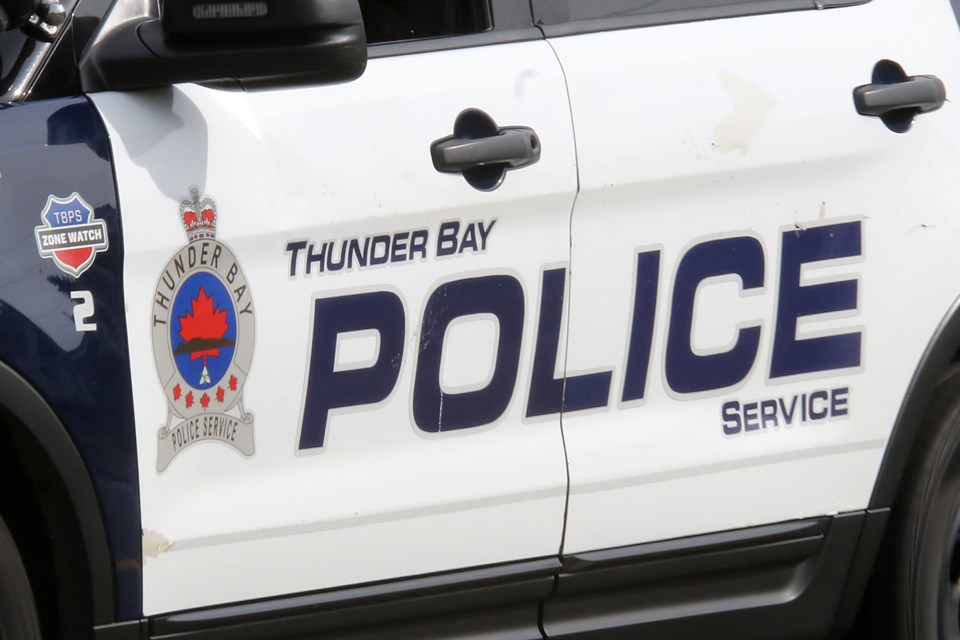THUNDER BAY — A respected sociologist and criminologist believes regaining public trust in a police service with a tarnished reputation is challenging but not impossible.
Frank Cormier is the Criminology/Sociology Research Practicum coordinator at the University of Manitoba.
He has taught there and in First Nations communities since 1995.
Cormier is aware of the situation in Thunder Bay, where the police service and the police services board both remain under intense scrutiny.
Policing in the city, and the oversight of policing in the city, have gained national attention because of allegations of systemic racism and inadequate investigations into the deaths of Indigenous people.
OPP and the Ontario Civilian Police Commission are currently conducting separate investigations into the actions of members of the service at the request of the province's attorney general and the solicitor general.
For the second time in four years, the Ontario government recently appointed an administrator to oversee the police board, resulting in the resignation of three of its five members.
Relations between the Thunder Bay Police Association and police leadership are strained, numerous complaints against administration have been filed with the Ontario Human Rights Tribunal, and morale among the rank and file is said to be poor.
"This kind of a situation creates all kinds of problems, really, for everyone. The public doesn't have a fully-functioning and a trusted police service," Cormier told TBnewswatch in an interview Tuesday. "Even in a case where certain officers are functioning well and doing their jobs well, there can still be mistrust and doubt by the public."
He added "It's not just the dysfunction itself, which is bad enough, but the perception of dysfunction is also terribly damaging. It can take a long time for an organization to regain the trust and the confidence of the public."
Cormier said when solutions are delayed, problems are exacerbated.
"The fact that this has been going on for quite some time, and there have been some efforts to mitigate the issues over the years...I think most observers would be rather disappointed and probably quite frustrated with the apparent lack of progress."
Cormier worked for six years as an independent justice consultant, completing projects for numerous clients including governments.
He has also designed and managed research and evaluation projects for clients such as Justice Canada, the Winnipeg Police Service and the Correctional Service of Canada.
The problem in Thunder Bay runs unusually deep, Cormier says
He said the Thunder Bay Police Service is not alone among Canadian police services in having a troubled relationship with Indigenous people, but described the apparent depth of the problem here as "unusual."
"The fact that there is now mounting evidence that there was significant entrenched...I'm going to say racism. If not on the part of individuals, there was certainly a lot of evidence that there was a racist culture entrenched within that organization."
Cormier said it's not simply a matter of getting rid of racist police officers.
"There's an entire culture within any organization, and the police are not alone in this. It becomes very difficult to change at the organizational level because it's not just an individual-level problem. There can be well-meaning individuals, but if they're working within a dysfunctional organization, then it's going to be very difficult for them to do their jobs properly."
There's no guidebook or list of best practices that might extricate a community from a predicament like this.
Cormier said that although "a strong person at the top of the hierarchy" can initiate positive change in these situations, there must be buy-in by the rest of the organization, particularly by the police association.
Some Indigenous leaders have called for the Thunder Bay Police Service to be disbanded, a step that was famously taken in Camden, New Jersey in 2012.
The police force in the city of 74,000 was completely rebuilt, but with mixed results.
"My hope is that that sort of extreme measure would not be necessary" in Thunder Bay, Cormier said, noting that while Canadian police services may have serious issues, none have anywhere near the level of misbehaviour that some U.S. police forces do.
He said that with a new management team, the Thunder Bay Police Service could still be turned around with the cooperation of the rank and file.
The current Thunder Bay police administration has implemented numerous measures aimed at improving investigative shortcomings and the police service's relationship with Indigenous people, and has said it will take further steps.
Chief Sylvie Hauth has also declared a commitment to ensure that uniformed and civilian members of the force are provided a healthy, welcoming, and safe work environment that promotes wellness and growth.
